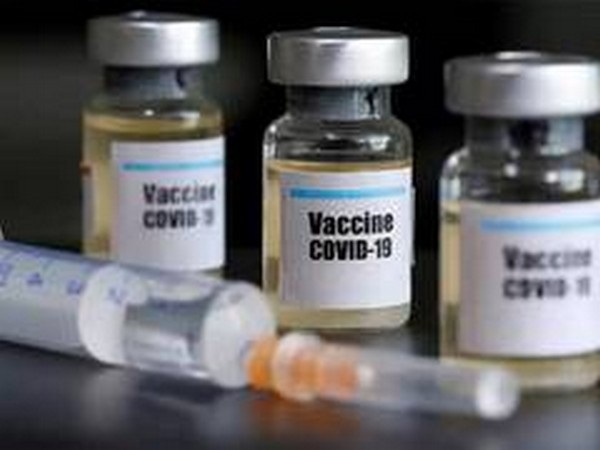UK expands COVID booster vaccine rollout to teenagers
Those aged 16 and 17 and considered at high risk from COVID-19 must wait four weeks 28 days from the date of a positive COVID-19 test before getting any dose of the vaccine.The latest booster expansion comes as UKHSA said COVID infection levels in London, the south east and east of England are flattening.

- Country:
- United Kingdom
Around 40,000 teenagers in England will be eligible for a top-up booster dose to protect against COVID-19 as Britain's National Health Service (NHS) expands the booking service to 16 and 17 year olds from Monday.
Previously, third doses were only recommended by the UK’s Joint Committee on Vaccination and Immunisation (JCVI) to 18 and over and for clinically vulnerable teenagers most at risk from Covid-19. This advice was recently expanded to all 16 and 17 years old and the NHS confirmed on Sunday that everyone within that age group can now get boosted in the coming weeks as they reach three months since their second jab.
''The NHS Covid-19 Vaccination Programme is expanding once again to offer eligible young people aged 16 and 17 the chance to book their boosters through the online booking service from tomorrow [Monday], with walk-in sites also available across the country, as the biggest and fastest vaccine drive in health service history continues at pace,” said Dr Nikki Kanani, the Indian-origin Deputy Lead for the NHS vaccination programme.
''COVID has caused so much disruption for so many families over the past two years, affecting young people’s lives and education, and getting vaccinated protects them, their family and their friends, letting them stay at school and continue socialising,” she said.
The NHS highlighted that recent data from the UK Health Security Agency (UKHSA) showed that two doses of the vaccine are not enough to stop people becoming unwell from the now dominant Omicron variant of COVID, but a booster significantly increases protection against the variant.
''More than 4 in 5 adults in England have already been boosted, helping to protect them from severe illness and reduce the pressure on the NHS in the face of Omicron,” said UK Health Secretary Sajid Javid.
''We’re now extending the programme to 16 and 17 year olds so they can top-up their immunity this winter to keep themselves and their friends safe. We can learn to live with COVID-19 if everybody comes forward for their vaccines and Gets Boosted Now,” he said.
Since the vaccination programme rolled out to the lower age groups in August last year, the NHS said more than 889,700 teens have had their first dose and more than 600,000 in this age group have had their second jab.
UK Vaccines Minister Maggie Throup added: “Thanks to the tireless dedication of the NHS, our booster programme has been a phenomenal success and allowed us to enjoy the festive season safely with loved ones.
''Omicron has spread rapidly across the UK and we’re doing everything we can to keep schools, sixth forms and colleges open as face-to-face teaching is so important.'' In line with JCVI guidance, the NHS warned that it cannot vaccinate 16 and 17 year olds within 12 weeks (84 days) of a positive COVID-19 test. Those aged 16 and 17 and considered at high risk from COVID-19 must wait four weeks (28 days) from the date of a positive COVID-19 test before getting any dose of the vaccine.
The latest booster expansion comes as UKHSA said COVID infection levels in London, the south east and east of England are flattening. While case numbers are still rising in northern parts of the country, that growth rate seems to be slowing.
''We see that infections are plateauing in the community, which is good, in London and the south east and the east of England,'' Dr Susan Hopkins, chief medical adviser at UKHSA, told the BBC.
''There are still risings, but much slower in the northern parts of the country,'' she said.
She added that hospital admissions are also ''slowing down'', with patients discharged ''faster'' due to the Omicron variant being relatively milder than other variants of COVID.
The UK’s daily recorded COVID infections finally fell below the 100,000 mark since last month, with 81,713 coronavirus cases on Saturday.
(This story has not been edited by Devdiscourse staff and is auto-generated from a syndicated feed.)
ALSO READ
My taxable income plummeted to Rs 680 in 2021-22 due to Covid-19 losses: BJP's Chandrasekhar
Olympians excited for Paris Games with fans back in the stands after COVID restrictions
MSMEs in TN crushed by triple impact of demonetisation, GST, and unplanned COVID lockdowns: Congress
HC raps Maharashtra govt for denying compensation over nurse’s COVID death, calls it ‘insensitive’
Health News Roundup: Sanofi to overhaul US operations of vaccines, cut jobs; After COVID, WHO defines disease spread 'through air' and more










